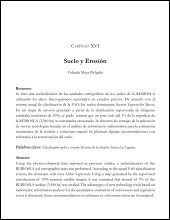Mostrar el registro sencillo del ítem
Use of BABA and INA As Activators of a Primed State in the Common Bean (Phaseolus vulgaris L.).
| dc.creator | KEREN MARTINEZ AGUILAR | |
| dc.creator | GABRIELA RAMIREZ CARRASCO | |
| dc.creator | AARON BARRAZA CELIS | |
| dc.creator | RAUL ALVAREZ VENEGAS | |
| dc.date | 2016 | |
| dc.identifier | http://cibnor.repositorioinstitucional.mx/jspui/handle/1001/1041 | |
| dc.identifier.uri | http://dspace.cibnor.mx:8080/handle/123456789/1831 | |
| dc.description | "To survive in adverse conditions, plants have evolved complex mechanisms that "prime" their defense system to respond and adapt to stresses. Their competence to respond to such stresses fundamentally depends on its capacity to modulate the transcriptome rapidly and specifically. Thus, chromatin dynamics is a mechanism linked to transcriptional regulation and enhanced defense in plants. For example, in Arabidopsis, priming of the SA-dependent defense pathway is linked to histone lysine methylation. Such modifications could create a memory of the primary infection that is associated with an amplified gene response upon exposure to a second stress-stimulus. In addition, the priming status of a plant for induced resistance can be inherited to its offspring. However, analyses on the molecular mechanisms of generational and transgenerational priming in the common bean (Phaseolus vulagris L.), an economically important crop, are absent. Here, we provide evidence that resistance to P. syringae pv. phaseolicola infection was induced in the common bean with the synthetic priming activators BABA and INA. Resistance was assessed by evaluating symptom appearance, pathogen accumulation, changes in gene expression of defense genes, as well as changes in the H3K4me3 and H3K36me3 marks at the promoter-exon regions of defense-associated genes. We conclude that defense priming in the common bean occurred in response to BABA and INA and that these synthetic activators primed distinct genes for enhanced disease resistance. We hope that an understanding of the molecular changes leading to defense priming and pathogen resistance will provide valuable knowledge for producing disease-resistant crop varieties by exposing parental plants to priming activators, as well as to the development of novel plant protection chemicals that stimulate the plant's inherent disease resistance mechanisms." | |
| dc.format | application/pdf | |
| dc.language | eng | |
| dc.publisher | Frontiers Media, S. A. | |
| dc.relation | info:eu-repo/semantics/reference/DOI/DOI: 10.3389/fpls.2016.00653 | |
| dc.relation | info:eu-repo/semantics/reference/URL/URL: https://www.frontiersin.org/journals/plant-science | |
| dc.relation | info:eu-repo/semantics/reference/ISSN/ISSN: 1664-462X | |
| dc.relation | citation:Martínez-Aguilar K., Ramírez-Carrasco G., Hernández-Chávez J. L.,Barraza A. and Alvarez-Venegas R. (2016) Use of BABA and INAAs Activators of a Primed State in the Common Bean (Phaseolus vulgarisL.). Front. Plant Sci. 7:653. | |
| dc.rights | info:eu-repo/semantics/openAccess | |
| dc.rights | http://creativecommons.org/licenses/by-nc-nd/4.0 | |
| dc.source | Frontiers in Plant Science | |
| dc.subject | info:eu-repo/classification/AUTOR/priming, common bean, epigenetics, BABA, INA | |
| dc.subject | info:eu-repo/classification/cti/6 | |
| dc.subject | info:eu-repo/classification/cti/31 | |
| dc.subject | info:eu-repo/classification/cti/3103 | |
| dc.subject | info:eu-repo/classification/cti/310306 | |
| dc.subject | info:eu-repo/classification/cti/310306 | |
| dc.title | Use of BABA and INA As Activators of a Primed State in the Common Bean (Phaseolus vulgaris L.). | |
| dc.type | info:eu-repo/semantics/article | |
| dc.type | info:eu-repo/semantics/publishedVersion |
Ficheros en el ítem
| Ficheros | Tamaño | Formato | Ver |
|---|---|---|---|
|
No hay ficheros asociados a este ítem. |
|||

